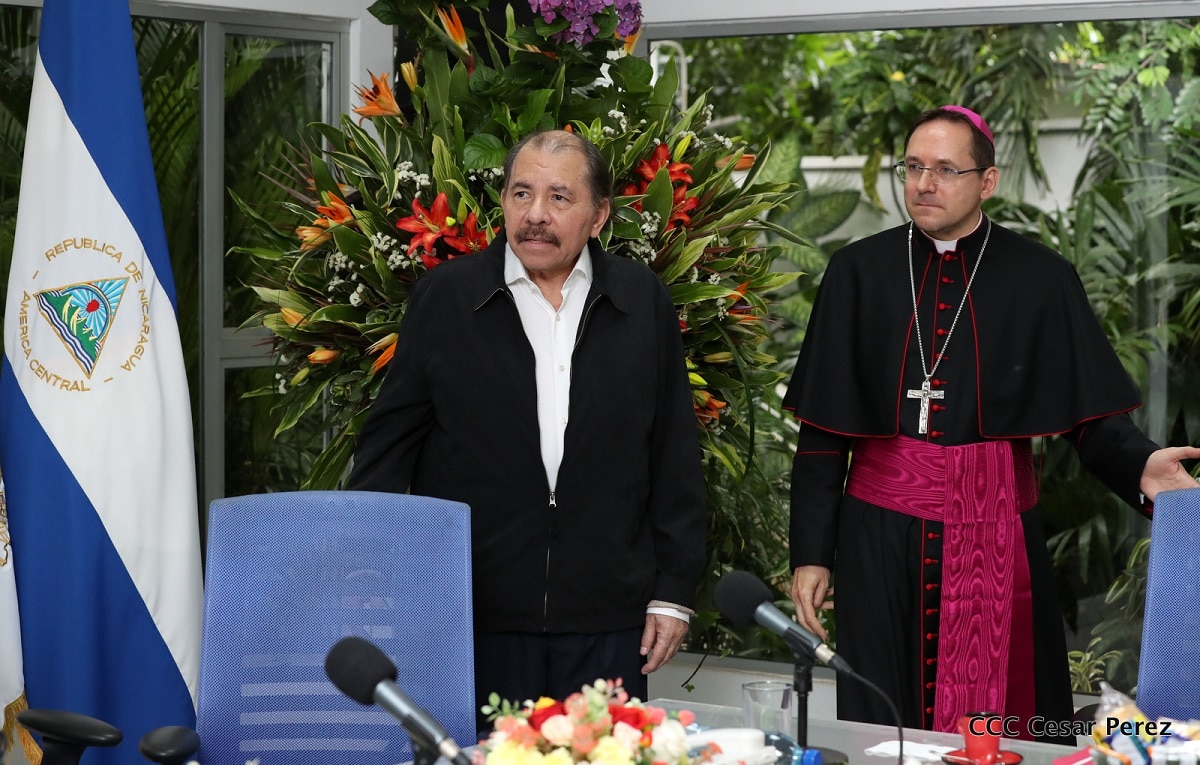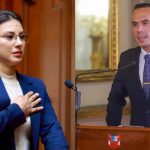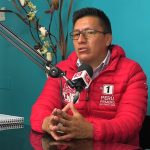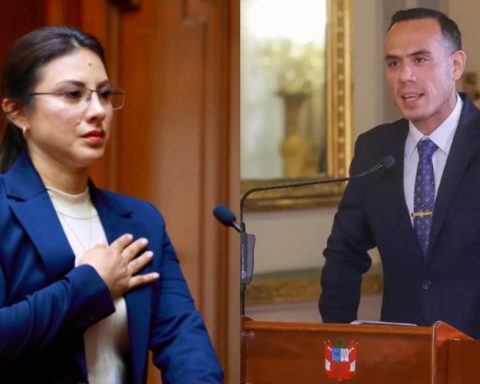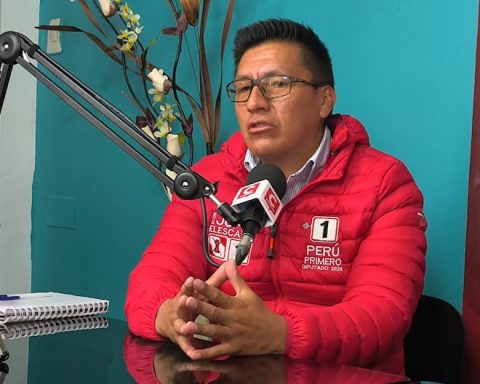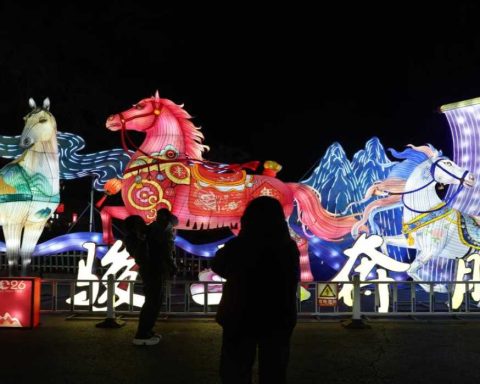The brief note issued by the Apostolic Nunciature indicating that the nuncio Waldemar Stalislaw Sommertag will be “absent” from Nicaragua, raises great questions about the future of relations between the Holy See and the regime of Daniel Ortega and Rosario Murillo, said former diplomats and experts in ecclesiastical issues consulted by CONFIDENTIAL.
Marcelo Valle Fonrougeformer Argentine ambassador to Nicaragua (2013-2019), witnessed Monsignor Sommertag’s good relations with the Ortega regime, which gradually wore out, culminating in this “de facto expulsion” of the Vatican ambassador.
“I remember that the nuncio was a diplomatic official quite functional with the regime. When the dialogue between the Government and the other sectors in the country took place, the nuncio together with the OAS, were the mediators and guarantors of those agreements. Some of these agreements were the release of political prisoners and the lifting of the police state. None of these agreements was fulfilled with the regime. Neither the OAS nor the Vatican asked the Government for explanations for the breach of the agreements,” Valle recalled.
The Government has still not commented on the incident with the apostolic nuncio, who unexpectedly left the country This Sunday, March 6. Rosario Murillo has not referred to the diplomatic crisis in her usual midday monologues, nor has any report been published in her propaganda media.
“What simply happened is that the relationship between the nuncio and the government wore out, or rather, the regime wore it out. There were frictions. He (Sommertag) was pressing for the creation of a commission on the status of political prisoners, to verify their conditions and respect for their human rights. This was considered by the Government as an interference in internal affairs,” added the former Argentine ambassador.
Vatican still silent on incident
The former diplomatic representative pointed out that it is now up to see how the Holy See will respond to this incident, if at all. “We have to see how the Vatican reacts, but it is evident that with this incident, the regime isolates itself more from the international community. Take another card out of the game of its possibilities: the Vatican”, commented Valle.
“Now the Vatican will surely have a greater defense in its claim for human rights, which is one of the flags that the international community maintains,” he advanced.
To date, the only concrete thing on the part of the Government regarding this controversy is the transfer of the Nicaraguan diplomatic representative to the Vatican, to the Japanese embassy, as revealed CONFIDENTIAL this Tuesday, March 8. No one was named in his place.
Neither did the bishops of the Episcopal Conference of Nicaragua publicly refer to the issue, despite the fact that they addressed the situation in an emergency meeting on Monday, March 7.
“The note verbale from the Nunciature is very brief, limiting itself to informing the diplomatic corps of the absence of the nuncio or head of mission, and indicating who remains as chargé d’affaires, which is customary. We cannot interpret the content of the note as a call for consultation or a withdrawal of the representative, since he does not say that, nor has it been accompanied by additional explanations, ”explained another former ambassador, who asked not to be summoned to avoid reprisals from the regime.
. The succinctness of its content, in the political-diplomatic context, however, lends itself to all kinds of speculation,” he added.
Sources close to the nuncio revealed to CONFIDENTIAL that the regime did not suspend Sommertag’s diplomatic credential, but imposed a period of several days to leave the country, before which the representative of Pope Francis decided to leave last Sunday.
“Let us bear in mind that the diplomacy of the Ortega government has been characterized by tension with the representatives of countries critical of its policy, as we have seen in the cases of Colombia, Argentina, Spain and the European Union. We will have to wait for what the Vatican says,” added the former diplomat.
Sources linked to the hierarchy of the Catholic Church consulted by CONFIDENTIAL This Monday they confided that they were already expecting this “de facto expulsion” of the nuncio due to the frank deterioration of relations between him and the Government, especially with Rosario Murillo.
Priest criticizes Sommertag management
However, some voices from the Catholic Church openly raised their voices to question Sommertag’s relationship with the regime, noting that he was not firm in his demands for the release of political prisoners and in seeking justice for the victims of repression. to the 2018 protests.
One of these voices is Father Edwing Románone of the main figures of the Catholic Church during the civic insurrection of April 2018, who gave shelter and shelter to the relatives of the victims during the violent operations of the Police and the paramilitaries in Masaya.
“Mr. Waldemar Stanislaw did a lot of damage to the country and to the Church. He joined the dictatorial regime of Daniel Ortega, he was never clear with direct questions from the media and ignored the reality of the Nicaraguan people, regardless of whether we are Catholic or not, ”wrote Father Román, who is currently in forced exile. , on his Twitter account.
Mr. Waldemar Stanislaw did a lot of damage to the country and to the Church. He joined the dictatorial regime of Daniel Ortega, was never clear with direct questions from the media, and ignored the reality of the Nicaraguan people, regardless of whether we are Catholic or not.
– Edwing Roman (@EdwingRoman14) March 8, 2022
Unprecedented diplomatic incident
A sociologist expert in ecclesiastical issues, who asked not to be identified, recalled that in the 1980s, the first government of the Sandinista Front expelled priests and bishops, but never dared to touch a diplomat from the Holy See.
The main precedent on the expulsion of a diplomatic representative that is remembered was precisely at that time, in 1988, when the Sandinista government expelled the US ambassador Richard Melton from Nicaragua.
“Because it is a nuncio, what happened is more serious, because in addition to being religious, he is a diplomat, a representative of a State. When I read the interview he had given to Agence France Press (Afp) at the end of November and in the context of the campaign for a Christmas without political prisoners, I thought that his statements were going to get him into trouble. It felt like he looked powerless. He surely insisted on the subject and after three months he experienced what it means to ‘let’s go with everything’, he commented.
On November 30, 2021, Sommertag gave an interview to the AFP press agency in which he assured that he, on behalf of the Holy See, continued to intercede for the political prisoners kidnapped by the regime.
“The Holy See and of course this Apostolic Nunciature from the first moment of my mission in Nicaragua in favor of the most vulnerable, among them detainees of all categories, including politicians,” the monsignor said on that occasion.
“When I read the news I felt a slight satisfaction, thinking that perhaps this could move the pope to take an interest and perhaps to pronounce himself on the humanitarian tragedy in Nicaragua and on the torture with which political prisoners are treated. Despite any blackmail or pressure that the Nicaraguan government has exerted on the pope, and we know that this is the government’s style, the silence of Pope Francis is disappointing for a majority of the population, who see in him a religious leader with power and influence”, added the expert on ecclesiastical issues.
Relatives of political prisoners: “Nuncio was already afraid”
The departure of the Vatican representative takes off the political scene to the main interlocutorr where relatives of political prisoners went to advocate for their release from the regime’s prisons.
However, the nuncio himself was already demotivated and even afraid of continuing to take the steps to convince Ortega and Murillo to release prisoners of conscience, confided relatives of political prisoners consulted by CONFIDENTIAL.
“Lately the nuncio was already afraid of interceding for the political prisoners. The last time we went to deliver a letter to the nuncio to see what could be done for the release of political prisoners was at the beginning of December of last year (2021). He was asked to intervene to get a special visit for relatives of political prisoners. He only received it and that was it. He said that he was going to see what could be done, but there was a change in his attitude, making it clear that he couldn’t do much”, confided a member of the Committee for the Release of Political Prisoners.
The diplomat of Polish origin, who arrived in the country after the outbreak of the 2018 crisis, always described these efforts in demand of political prisoners as a two-way channel “to carry messages” for humanitarian purposes, and not as a channel of political negotiations.
“That he interceded in favor of the political prisoners was a threat to the dictatorship and there was a clear risk that he would be expelled from the country if he continued to say what he did not have to say or to interfere, as the regime says, in the internal affairs of Nicaragua. . Every day he is closing the door of those who are interceding for the political prisoners and the relatives of the victims”, lamented the member of the Committee.
